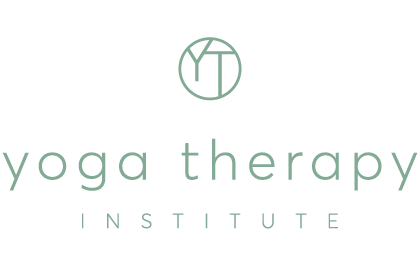Why understanding Ayurveda and the doshas can help you support your Yoga students and clients.
Yoga and Ayurveda – the Doshas together healing body and mind
In the Vedic tradition, Yoga and Ayurveda were used together to heal the body and mind. Yoga supported a well-functioning body and mind, while Ayurveda complemented this with healing for both the body and mind. Combined they focused on the ‘whole human being’ as discussed by David Frawley, internationally recognised teacher of Ayurveda.
Traditional Medicine Heals the Now
Ayurveda is one of the world’s leading health sciences. In the West it is often introduced through yoga teacher training with a basic discussion about the principles of Ayurveda. This includes the three core body types, the Doshas: Kapha, Pitta and Vata. This is a limited introduction to a centuries old scientific practice, far removed from the Vedic tradition. Yoga and Ayurveda were integrated wellbeing systems.
Support your clients by knowing their Dosha
Knowing a client’s Dosha gives you insights into their well being and greater awareness of how a client might respond to a given Yoga / Yoga therapy practice. It enhances your ability to tailor classes and programs for more holistic and effective outcomes for your clients.
Honour the Individual in All of Us
Ayurvedic practitioner Caroline Robertson explains “the key to making the most of your make-up is to follow Socrates advice; ‘know thyself’ and engage your energies appropriately.”
Furthermore, Ayurveda is not just concerned with recommended diets and exercises, but honours the individual’s characteristics based on their constitution. This is why it is so valuable to understand the Doshas. How one can be more dominant than another, how they work together and what happens when there is an imbalance. Caroline offers a snapshot of the Doshas as:
- Vata: You are enthusiastic and love an adventure and new experiences and your vitality is infectious to those around you. Your moods can also fluctuate as your mind is quick to race around. When out of balance you’re at risk of anxiety or insomnia. You seek stimulation from variety and creative endeavours.
- Pitta: You are straight to the point and have a sharp intellect, are driven and clear with your path ahead. You’re happy to take the lead and are confident in your capabilities. When out of balance, you may be short tempered or quick to argue. You seek satisfaction through accomplishing your goals.
- Kapha: You are considered calm and quiet, empathetic, and kind. You’re a carer by nature and have a patient demeanour. Sometimes your care for others may lead to neglecting your own self. As a result you may find yourself feeling stuck in a rut of laziness. You seek gratification in settling into your comfort zone.
Ayurveda explains Who We Are
The Doshas impact all aspects of life; including the way we work, the careers we are drawn to and the relationships we have with others and with ourselves. Knowing this is beneficial when working with yoga clients, but particularly valuable in how we interact as yoga teachers.
Caroline adds it’s enlightening when we understand our Dosha constitution and use this with the healing properties of Ayurvedic medicine and yoga. “Understanding your unique interplay of energies allows you to find your healthy rhythm.” It is that simple.
For more information on Ayurveda
Caroline Robertson is author of Celebrate your Constitution featured in Natural Health Magazine. She hosts the Yoga Therapy Institute’s Certificate in Clinical Ayurveda, which includes five online modules.
An introduction to Ayurveda is offered in the Graduate Certificate in Yoga Therapy
David Frawley is internationally respected for his research including in Yoga and Ayurveda. Wisconsin: Lotus Press (1999).
